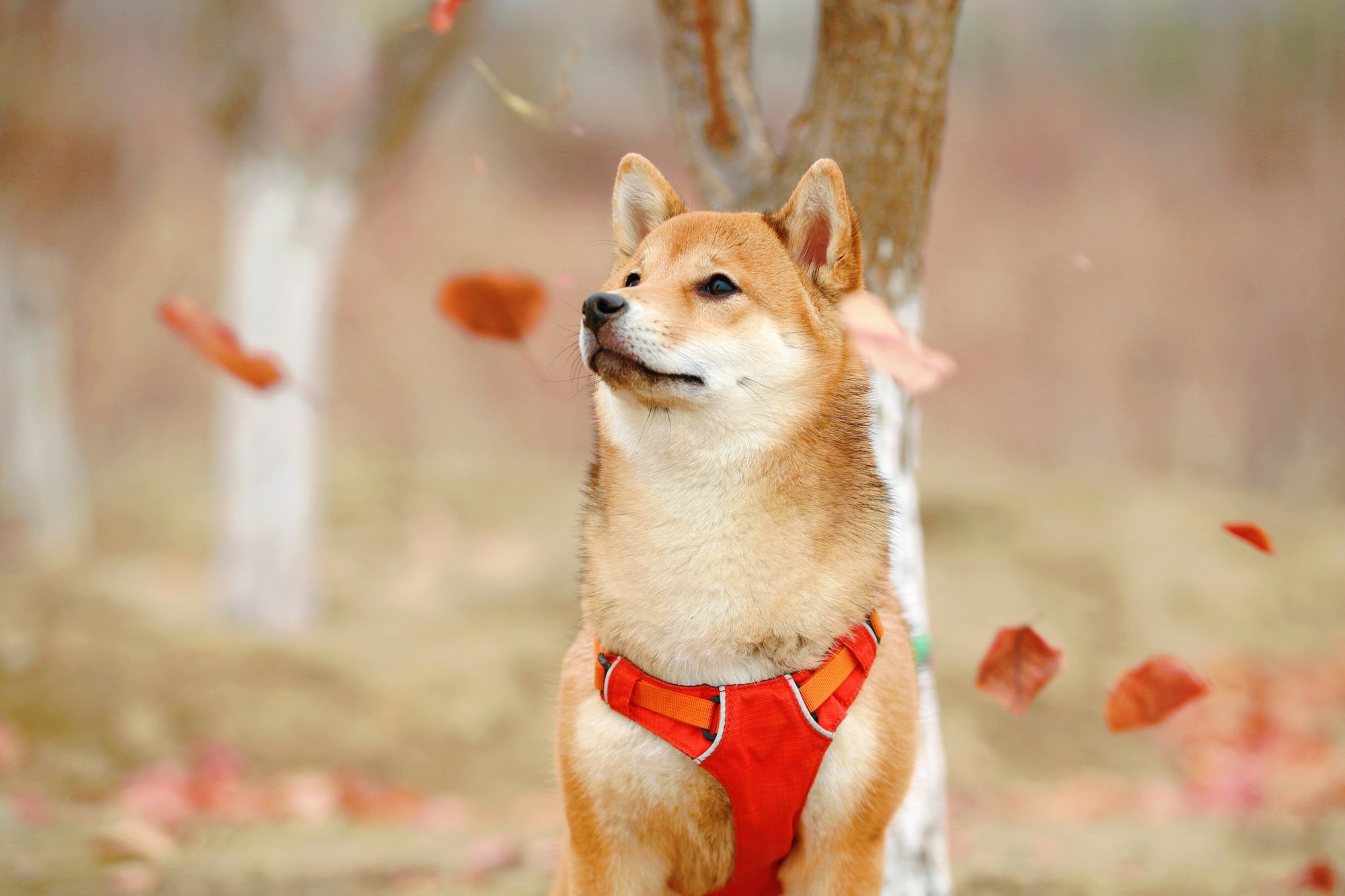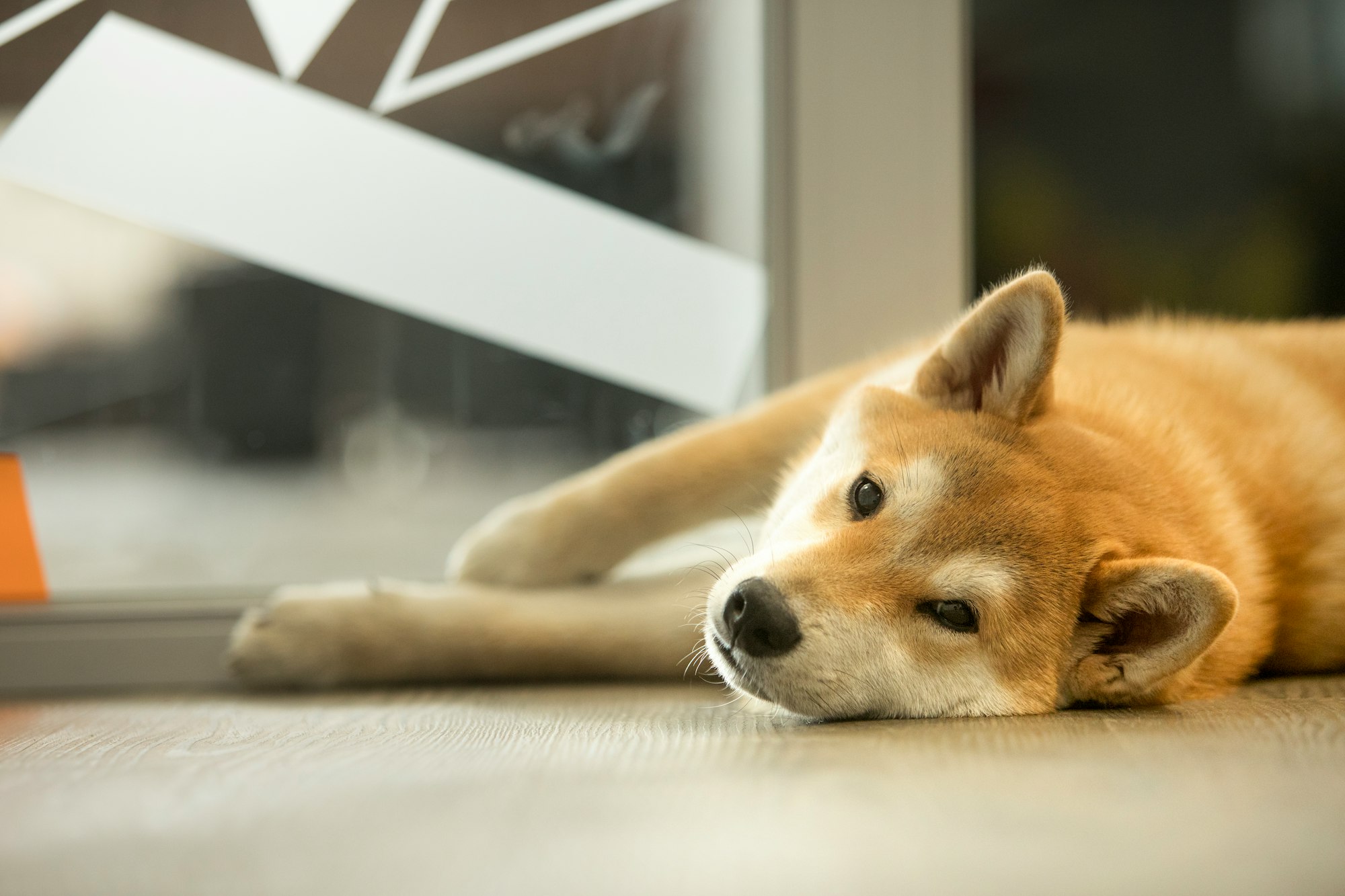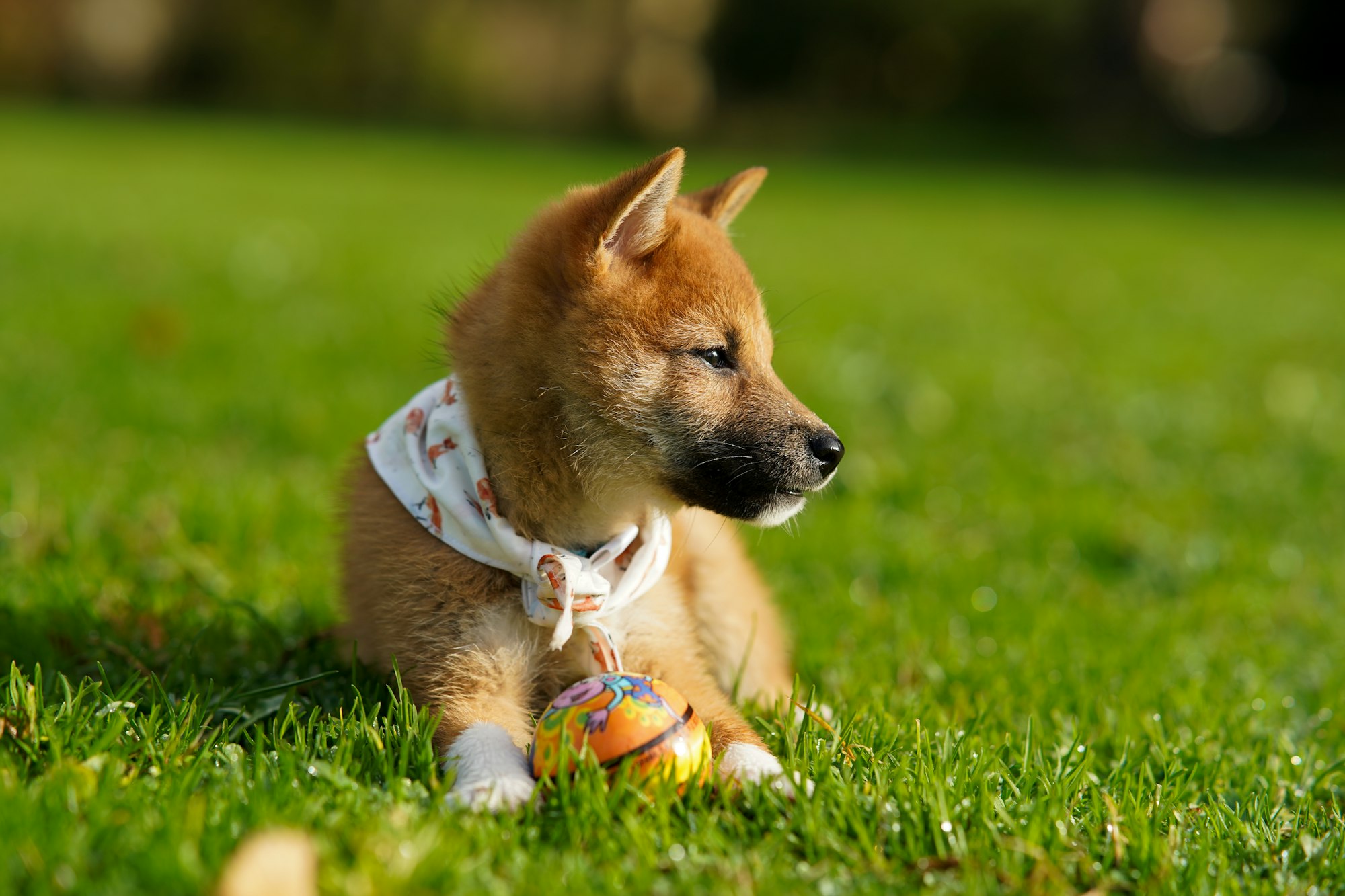Are you considering adding a Shiba Inu to your family but wondering about the costs involved? Look no further! With this article, we're here to help you understand the various factors that affect the price of a Shiba Inu and provide valuable insights on finding reputable breeders.
We'll also cover the additional expenses you can expect when caring for this unique breed and explore ways to lower the overall cost without sacrificing quality or health standards.
So, whether you're a first-time dog owner or an experienced pet parent, join us as we delve into the world of Shiba Inu costs and help you decide whether this captivating canine companion is the right fit for you and your budget.

Invest in Your Shiba Inu's Safety with the Fi Dog Collar
Bringing a Shiba Inu into your family comes with unique joys and responsibilities, including safeguarding their well-being. The Fi Dog Collar offers advanced GPS tracking technology to give you peace of mind by ensuring your Shiba Inu is always safe. With real-time location tracking and immediate alerts when they leave designated safe zones, you can feel confident that your furry friend is secure, even if they wander off on one of their adventurous escapades.
The Fi collar's durable and water-resistant design is perfect for the energetic Shiba Inu, while its long-lasting battery ensures you have consistent coverage. Invest in your Shiba Inu's safety and get the Fi Dog Collar today!
How Much Does A Shiba Inu Cost?
If you're considering bringing a Shiba Inu into your home, it's crucial to understand the financial commitments of this unique and popular breed. It's not just about the initial cost of purchasing or adopting a Shiba Inu but also the ongoing expenses such as vet appointments, vaccinations, grooming, and food that must be factored in.
Upfront Costs
The cost of bringing a Shiba Inu into your life can vary depending on whether you adopt or purchase from a breeder. If you opt for a breeder, it's crucial to find a reputable one who prioritizes responsible breeding practices and health testing. In this regard, American Kennel Club is an ideal registered breeder.
However, you should be prepared to pay a premium for a dog from a reputable breeder, with prices ranging from $1500 to $3500 or more.
The purity of the Shiba Inu's bloodline can also impact the price, with purebred dogs typically being more expensive. Additionally, dogs with an expected larger size may be pricier than those expected to be smaller.
On the other hand, if you choose to adopt a Shiba Inu from a rescue organization, the costs may be lower. Adoption fees typically range from $300-$600, which often include spaying/neutering procedures and necessary vaccinations that have already been completed.
While you may not know the dog's full history or bloodline, you will give a dog in need a loving home.
Ongoing Expenses
When it comes to ongoing expenses for a Shiba Inu, there are several factors to consider. Veterinary care is an important aspect of pet ownership and can be a significant expense. Annual veterinary check-ups and vaccinations typically cost between $200-$300, but emergency visits or treatment for health issues can add up quickly.
Grooming is another aspect of caring for a Shiba Inu. These dogs have a double coat that requires regular maintenance to keep them healthy and clean. Professional grooming services can cost between $50-$100 per session, depending on the location and the specific services.
Pet food and treats are ongoing expenses that you'll also need to account for. Shiba Inus require high-quality dog food tailored to their specific needs, which can cost around $40-$60 per month, depending on the brand and size of the bag. Treats are also necessary for training and should be factored into your monthly budget.
How Much Is A Shiba Inu Puppy?
The cost of a Shiba Inu puppy can vary depending on several factors, including the breeder's reputation, bloodline, and location. On average, a purebred Shiba Inu puppy from a reputable breeder can cost anywhere from $1,500 to $5,000. In some cases, high-quality puppies with exceptional pedigrees can fetch prices upwards of $5,000 or more.
Adopting a Shiba Inu is typically less expensive than buying from a breeder, with adoption fees ranging from $300 to $600. This fee usually includes spaying/neutering costs and initial vaccinations. However, keep in mind that Shiba Inu are a popular breed, which can make it challenging to find available dogs through adoption agencies.

Factors That Impact The Cost of a Shiba Inu
Several factors impact the price of a Shiba Inu, including its color, bloodline, breeder reputation, and estimated size. Understanding these elements is crucial when evaluating the value of your investment.
Colors
Shiba Inus are a breed of dog known for their fox-like appearance and loyal, independent temperament. Although genetically the same species, they come in various colors, including red, black and tan, sesame, and cream.
Red Shiba Inus are highly sought after due to their vibrant color, which makes them stand out. Some breeders focus solely on producing red Shibas, driving up their prices. Black and tan Shibas are also popular and can be similarly priced to red ones, while sesame and cream-colored Shibas are less common and thus less expensive.
Bloodline/Purity
A Shiba Inu's bloodline is another factor that affects its cost. Purebred dogs with strong lineage from champion parents will often command higher prices due to their superior genetics and potential show quality traits. Mixed breeds or those without documented pedigrees may be less expensive.
Breeder Reputation and Location
The breeder's reputation significantly impacts the cost of a Shiba Inu puppy. Reputable breeders who prioritize health testing and responsible breeding practices typically charge more for their puppies because they invest time and resources to ensure each pup is healthy before going home with its new family. The location of the breeder can also impact the price, as costs of living and demand can vary widely by region.
Estimated Size
The estimated size of the Shiba Inu can also affect its price. Generally, smaller dogs tend to be more expensive than bigger ones because of their heightened appeal among pet owners who favor compact animals that need less room.
Age of the Dog
Puppies are typically more expensive than adult dogs. This is because they require a lot of care, and there's often high demand for puppies.
Health Checks and Vaccinations
Breeders who invest in health checks for genetic conditions, vaccinations, and other veterinary care for their puppies may charge more. This is because they are providing a service that can save the new owner considerable expense and trouble.
Secure Your Shiba Inu with Fi
As you consider the joys and responsibilities of owning a Shiba Inu, don't overlook the importance of their safety. The Fi Dog Collar is here to ensure that your adventurous Shiba Inu remains within safe boundaries. Equipped with cutting-edge GPS tracking technology, the Fi Collar allows you to monitor your pet’s location in real-time and receive alerts if they wander out of designated safe zones.
Ideal for the spirited and independent Shiba Inu, this collar combines durability with sleek design, ensuring your dog stays safe without compromising on style. Invest in peace of mind and in the safety of your new family member with the Fi Dog Collar—because a secure Shiba Inu is a happy Shiba Inu. Visit TryFi.com today to learn more about how the Fi Dog Collar can help protect your precious pet.
Shiba Inu Breed Guide
The Shiba Inu is a charming dog breed with Japanese origins, known for its striking appearance, spirited personality, and small size. However, before considering owning one, it's crucial to understand the breed's distinctive traits and needs.
Personality
Shibas are independent and bold dogs with strong instincts, making them both charming and challenging at times. They are intelligent and form strong bonds with their family members. Early socialization is crucial to ensure good manners around people and other animals.
Size and Weight
Adult males weigh between 18 to 24 pounds, and females are typically between 15 to 20 pounds, with a height of 13 to 17 inches at the shoulder. Their compact size makes them suitable for smaller living spaces as long as they receive proper exercise.
Average Lifespan
With an average lifespan of 12-15 years, Shiba Inus are relatively long-lived. Proper care, including regular veterinary check-ups, vaccinations, grooming routines, and an appropriate diet and exercise regimen, will help ensure a healthy life.
Lifestyle and Activity Level
Shiba Inus have moderate to high energy levels and need daily exercise to keep them physically and mentally stimulated. They enjoy brisk walks, runs, playtime in a securely fenced yard, hiking, and agility training.
It's crucial to note that Shiba Inus have a strong prey drive, making them prone to chasing and hunting small animals like squirrels, rabbits, and birds. Keeping them on a leash outside enclosed areas is necessary to prevent them from running off or getting into conflicts with other animals.
In addition to physical exercise, Shiba Inus require mental stimulation to prevent boredom and destructive behavior. Activities such as puzzle toys, obedience training, and interactive playtime can keep them mentally engaged.
Approximate Lifetime Care Costs
The cost of owning a Shiba Inu involves more than just the initial purchase price. Additional costs include veterinary care, grooming, pet food, licensing and microchipping fees, and training classes.
On average, Shiba Inu puppies cost between $1,500 and $3,500. Here's an estimate of the additional costs:
- Veterinary care (including vaccinations): $1,000 - $2,500
- Grooming: $300 - $600 per year
- Pet food: $250 - $700 per year
- Licensing & microchipping fees: Varies by location
How Can I Lower The Cost of a Shiba Inu?
If you're interested in owning a Shiba Inu but are concerned about the associated costs, there are several ways to make the experience more affordable.
Adopting vs Buying from a Breeder
Adopting a Shiba Inu from a shelter or rescue organization is typically less expensive than purchasing one from a breeder. Adoption fees often include initial vaccinations and spaying/neutering services, which can significantly reduce your upfront costs. Adopting also provides a home for a dog in need and supports animal welfare efforts.
Choosing an Older Dog Instead of a Puppy
Puppies are often more expensive than adult dogs due to their popularity and higher demand. Opting for an older Shiba Inu can not only save you money on the purchase price but also on potential training expenses. Older dogs tend to be better behaved and house-trained compared to puppies.
Incorporating Preventative Care Measures
By being proactive with preventative care, you can reduce the likelihood of expensive medical procedures down the line. Here are some measures to consider:
- Vaccinations: Keep your Shiba Inu's vaccinations up-to-date by consulting with your veterinarian regularly. This can help prevent costly illnesses in the future.
- Grooming: Regular grooming can help prevent skin issues that may require medical attention later. Brushing your Shiba Inu's coat and trimming their nails can be done at home to save on professional grooming fees.
- Dental Care: Maintain good oral hygiene for your dog by brushing their teeth regularly, providing dental chews, or using water additives. This helps prevent expensive dental procedures and tooth decay in the future.
- Pet Insurance: Consider investing in a pet insurance plan that covers accidents and illnesses. This can help offset unexpected veterinary expenses should they arise.
Remember, owning any pet comes with financial responsibilities. However, by exploring these cost-saving options, you can enjoy the companionship of a Shiba Inu without breaking the bank.

Conclusion
To sum up, the cost of a Shiba Inu can vary due to various factors, including the breeder's reputation, location, and age. Typically, the cost of a Shiba Inu puppy ranges from $1,500 to $3,000. However, additional expenses such as vet bills, adoption fees, dog food, and pet insurance must be considered.
As a new owner of a Shiba Inu, it's essential to prioritize your pet's safety. One way to do this is by investing in Fi's GPS-tracking Dog Collar, which allows you to monitor your pet's real-time location and ensure its safety.
If the cost of owning a Shiba Inu worries you, there are options like adopting from shelters or rescue groups or finding reputable breeders that offer payment plans. However, be sure to conduct thorough research before making any decisions.






